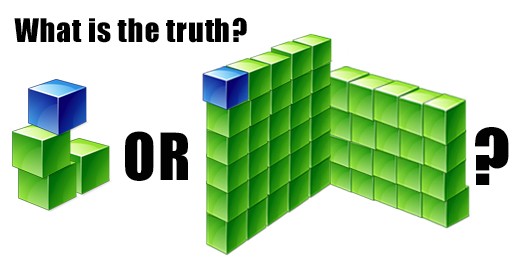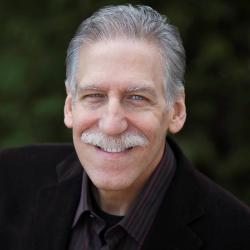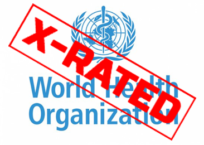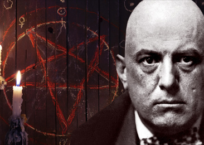
According to a 2011 Gallup poll, Americans thought that 25 percent of the population was gay (meaning one out of every four people), while those aged 18-29 put the figure at closer to 30 percent (meaning almost one in every three people). The reality is that less than 2 percent of the population is gay (meaning fewer than one in 50 people), and many gay leaders know this is true.
People of America, you have been duped.
For many years, we were told that “one in every 10 Americans” was gay, a figure based on the massively flawed 1948 study of Alfred Kinsey. (Kinsey actually relied on data from male prisoners to come up with his statistics.)
Even though gay activists knew the figure was inflated, they used it as a convenient lie, since, as two leading gay strategists noted in the late 1980s, “there is strength in numbers.” (For details, go here.) As expressed by a gay leader a few days ago, “The truth is, numbers matter, and political influence matters.”
In other words, if Americans realized that less than 2 percent of the population was gay rather 10 percent (let alone 25 percent), they would have a very different view of “gay rights.”
To be sure, it is wrong to bully or oppress or mistreat anyone based on gender or ethnicity or romantic attractions, so that is not the question. And whether gays are 1 percent of the population or 90 percent, they should not be mistreated.
But you don’t overhaul the legal system to the point of attacking freedoms of speech, conscience, and religion based on the sexual and romantic desires of a tiny percentage of the population, nor do you engage in a massive social experiment, like redefining marriage, because of a statistically tiny group of people.
Back in 2003, in their official brief in the landmark Lawrence v. Texas U.S. Supreme Court decision, a major coalition of 31 gay and pro-gay organizations used the figures of 2.8 percent of the male population and 1.4 percent of the female population as identifying as gay, lesbian, or bisexual.
This means that these activist organizations were fully aware that the 10 percent figure was completely bogus and yet they never protested when that figure was used to advance their cause. Why expose such a useful lie?
In 2011, UCLA law school’s Williams Institute released a study done by Dr. Gary J. Gates, who serves as the Williams Distinguished Scholar at the Charles R. Williams Institute on Sexual Orientation and Gender Identity Law and Public Policy. His official bio also states that, “Dr. Gates co-authored The Gay and Lesbian Atlas and is a recognized expert on the geography and demography of the lesbian, gay, bisexual and transgender population. … Many national and international media outlets regularly feature his work.”
According to Dr. Gates, just 1.7 percent of the population identifies as gay, with about the same figure identifying as bisexual.
Contrast this with an informal poll I conducted while speaking at a Christian youth conference last month, asking these committed young people what percentage of the population was gay. (Some of these kids were home schooled and most seemed less aware of the more notorious cable TV shows, so they were less worldly wise than your average young people.) The first teen answered, “Thirty percent.” The second said, “Forty percent.”
Where in the world did they get such ridiculous figures? You can thank the media for that, by which I mean the sitcoms, dramas and movies along with the major news outlets. (For an enlightening Pew Research survey, go here.)
But this is where things get very interesting. For years gay activists worked to get a sexual-orientation question on the CDC’s National Health Interview Survey (NHIS), a document of major importance in both government policy and public perception.
That question was included in the 2013 survey, and the results, released last month, made for shocking story lines: “1.6 percent of adults self-identify as gay or lesbian, and 0.7 percent consider themselves bisexual.”
These figures approximated the ones used by conservative leaders for years, because of which we were mocked as liars and vilified as haters. Now the government confirmed what we knew to be true.
Gay and lesbian leaders weren’t happy with the results, with Dr. Scout, director of the nonprofit CenterLink’s Network of LGBT Health Equity, stating, “If we really are 2 percent vs. 4 percent, it means people are going to say, ‘OK, I’m only going to care half as much.'”
How about changing that to, “If we really are 2 percent vs. 25 percent, people are going to say, ‘OK, I’m only going to care one-twelfth as much.'” And take note: Dr. Scout only claimed that 4 percent were gay.
Bisexual leaders were concerned as well, with Ellyn Ruthstrom, president of the Bisexual Resource Center in Boston, opining, “For such a respected survey as the NHIS to produce such a small number is a blow.”
“It’s just going to make it harder for us when we’re going out and talking to people about the bisexual population,” she said. “We have a real hard time already with people not taking the bisexual identity seriously.”
But it gets more interesting still. An article in the Washington Post entitled, “Gay rights groups dispute federal survey’s estimate of population,” notes that the 2013 National Adult Tobacco Survey came up with results that “more resembled what gay-rights groups had expected. It found that 3.5 percent of Americans considered themselves gay, lesbian or bisexual, with 1.9 percent labeling themselves gay or lesbian, and 1.6 percent identifying as bisexual.”
This means that gay-rights groups knew full well that, rather than being one in 10, their numbers were closer to one in 50, with fewer than one in 60 identifying as bisexual.
The truth is that America has been lied to and duped, and gay activists have been complicit in the deception, if not actively leading the way in the ruse. With the new survey out, it’s time to expose the lies.
The reality is that fewer than one in 50 Americans identify themselves as gay, out of which only a minority wants to be “married.”
How foolish, then, to redefine marriage, restrict freedoms of conscience, speech, and religion, and engage in a massive social experiment based on such a tiny percentage of the population.
We won’t be duped again.
This article was originally posted on the ChristianPost.com website.
































